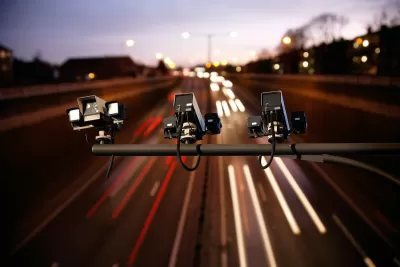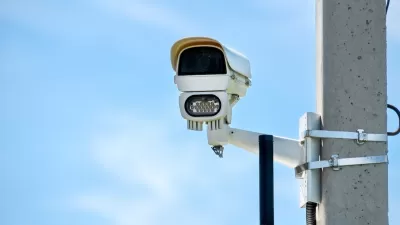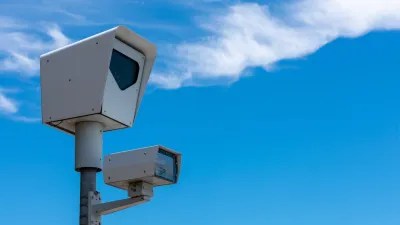While some states and cities are embracing automated traffic enforcement as a tool for improving road safety, others are banning the technology over concerns that the programs are designed for profit rather than public benefit.

The growing movement to use automated traffic cameras to enforce road rules is coming up against opposition from some local officials and drivers who see the programs as a “cash grab” rather than a true safety effort. To date, at least eight U.S. states have laws banning speed cameras. Some states are regulating camera vendors to ensure they are not profiting from citations and that revenue is going to pedestrian safety projects.
However, cameras have been shown to work. New York City issued over 400,000 tickets to drivers who block or park in bus lanes since its automated enforcement program began. In Philadelphia, excessive speeding dropped by 90 percent after the city installed cameras along one particularly dangerous road segment.
According to Kamron Clifford of mobility analytics firm Arity, “While speed cameras can be frustrating, they are a proven tool for reducing traffic fatalities and raising awareness of risky driving behaviors.” But road design, pedestrian infrastructure, and other interventions are also key parts of the broader effort to eliminate road deaths.
FULL STORY: State and local lawmakers take a renewed look at speed enforcement cameras

Manufactured Crisis: Losing the Nation’s Largest Source of Unsubsidized Affordable Housing
Manufactured housing communities have long been an affordable housing option for millions of people living in the U.S., but that affordability is disappearing rapidly. How did we get here?

Americans May Be Stuck — But Why?
Americans are moving a lot less than they once did, and that is a problem. While Yoni Applebaum, in his highly-publicized article Stuck, gets the reasons badly wrong, it's still important to ask: why are we moving so much less than before?

Research Shows More Roads = More Driving
A national study shows, once again, that increasing road supply induces additional vehicle travel, particularly over the long run.

Judge Halts Enforcement of Anti-Homeless Laws in Grants Pass
The Oregon city will be barred from enforcing two ordinances that prosecute unhoused residents until it increases capacity and accessibility at designated camping sites.

Advancing Sustainability in Los Angeles County Schools
The Los Angeles County Office of Education’s Green Schools Symposium brings together educators, students, and experts to advance sustainability in schools through innovative design, climate resilience strategies, and collaborative learning.

Using Old Oil and Gas Wells for Green Energy Storage
Penn State researchers have found that repurposing abandoned oil and gas wells for geothermal-assisted compressed-air energy storage can boost efficiency, reduce environmental risks, and support clean energy and job transitions.
Urban Design for Planners 1: Software Tools
This six-course series explores essential urban design concepts using open source software and equips planners with the tools they need to participate fully in the urban design process.
Planning for Universal Design
Learn the tools for implementing Universal Design in planning regulations.
City of Moreno Valley
Institute for Housing and Urban Development Studies (IHS)
City of Grandview
Harvard GSD Executive Education
NYU Wagner Graduate School of Public Service
City of Cambridge, Maryland
Newport County Development Council: Connect Greater Newport





























